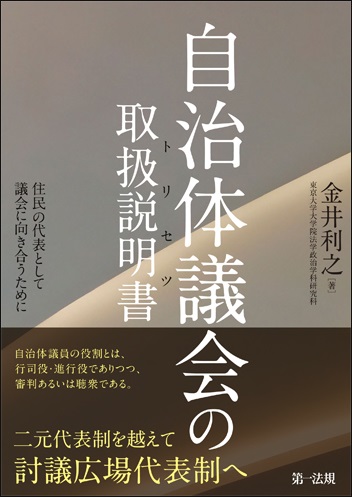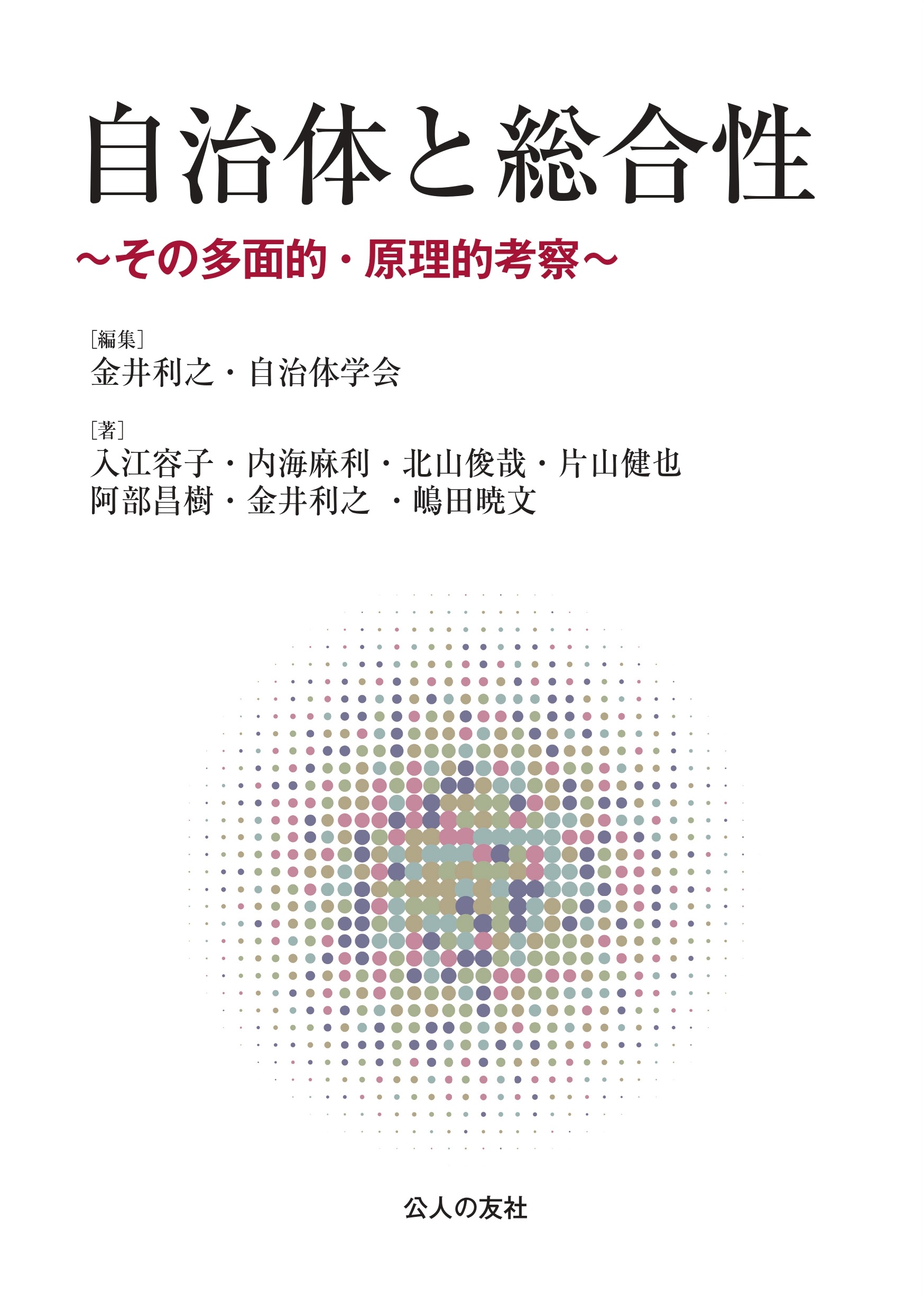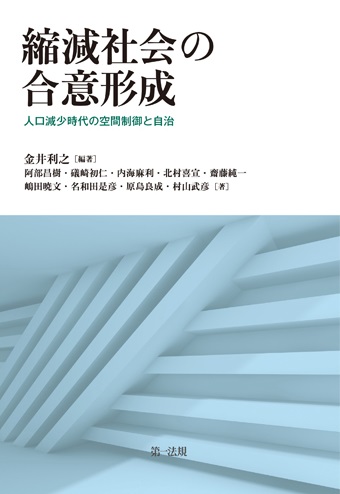
Title
Jichitai-Gikai no Torisetsu (An Instruction Manual of Municipal Councils - When Representatives Establish a Dialogue with the Municipal Councils)
Size
352 pages, A5 format
Language
Japanese
Released
May 17, 2019
ISBN
978-4-474-06738-7
Published by
DAI-ICHI HOKI
Book Info
See Book Availability at Library
Japanese Page
Distrust of local councils and councillors is rife across Japan, with the constant media coverage of scandals, such as unethical use of political power, and political conflicts. The majority of requests from community members therefore pertain to the reduction in costs of local councils and council members, and decline in the number of council seats. The general public believe that councillors do not contribute to the communities, but continue to benefit financially from their positions. Similarly, a lack of council members also poses a serious problem for the community: certain councils have been experiencing membership shortages and voting cancellations due to a dearth of nominees. Aging councillors are hesitant to retire due to the lack of successors. It is paradoxical that very few people want to run for council, even though these positions are extremely well-paid. In fact, people are less focused on financial gain than they are on the following concerns—that local council members do not have any reputations and that their council positions may not provide them with a sense of fulfillment. This could lead to the chief exectives of local governments – mayors and governors ignoring their parliamentary accountabilities and behaving selfishly.
This book delves into people’s distrust of local councils and council members. In doing so, it delineates those factors that drive them to engage in unethical practices—not in order to reinforce people’s lack of faith in local councils and councillors, but to explain how the Japanese people have developed excessively idealistic notions of local government, which are based on unrealistic expectations. The book thus reveals the legitimate reasons for people’s mistrust of public officials. This book also challenges the current penchant for labeling councils and councilors as “local”, a term that embodies a set of perceptions that prioritize the central government while undermining the role of local ones. Local governments are “municipal” or “regional” governments; they are a mechanism that enables the members of a community to govern themselves. Dichotomous terms like “superior-inferior” should not inform discussions about central and local governments. This book therefore avoids discussing governance in terms of local governments and government officials; instead, it refers to members of “municipal” or “regional” governments as community representatives.
Municipal councillors face two challenges as they work towards meeting the expectations of the communities they represent. The first is that they have to contend with one-man chief exective, who has been elected by direct suffrage. Tthey have to act as collegiate body. Chapter 1 discusses this challenge. Requests from members of the community cannot be responded to without support from the chief executive officer. However, Japan’s longstanding, dualistic presidential municipal election system sees both the members and the chief executive as equals, since they are all elected by direct suffrage. In other words, a majority of experts who support the dualistic presidential system believe that, rather than basing their decisions on the opinions of councils and councillors, the chief executive must govern in a way that directly addresses the needs of the community. This book criticizes the tendency to prioritize the opinions of the chief executive in real-world municipal or regional politics, and underscores the importance of communication between the chief executive and members of council—which the ideal municipal or regional council would do in order to better represent community interests. In such an environment, the chief executive officer ceases to function as the sole representative of the community people.
The second challenge that members of a municipal council face is the council itself. In order for each council member to respond to requests from the community, they need to work with each other. Chapter 3 discusses this challenge. A council—which is a collegiate body whose members have all been elected, on an equal basis, as community representatives—must strive to come to a majority coalition. While some of their constituents may view power games and compromise as unethical, councillors have no choice but to engage in such activities if they wish to meet their constituents’ expectations. It is of the utmost importance that community members understand the role that each councillors plays. This is why the subtitle of this book is “When Representatives Establish a Dialogue with the Municipal Councils.”
Chapter 2 discusses how councillors at the municipal level, along with the chief exective, formulate and implement policies when council is in session. This book aims to deepen readers’ understanding of municipal or regional councils and councillors in the hope of overcoming their distrust of councils and councillors. That being said, the book’s intention is not simply to recommend silver bullet political reforms. Rather, it seeks to outline realistic measures and mechanisms for councils and their members.
(Written by KANAI Toshiyuki, Professor, Graduate Schools for Law and Politics / 2021)



 Find a book
Find a book



